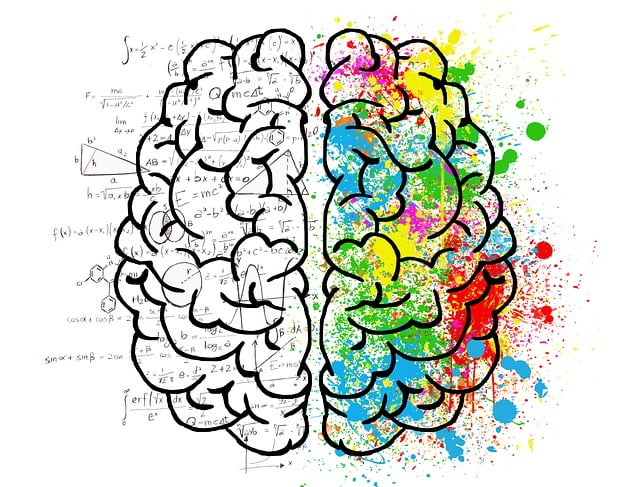Anxiety treatment for specific phobias involves a combination of cognitive-behavioral therapy (CBT), exposure therapy, mindfulness, medication, support groups, and alternative practices like acupuncture and herbal remedies. CBT targets negative thought patterns, exposure therapy reduces fear responses through gradual exposure, and mindfulness practices like meditation foster emotional regulation. Medication, including SSRIs and beta-blockers, manages symptoms, while support groups provide a safe community for sharing and learning. Alternative treatments offer complementary approaches to holistically address phobia-related anxiety.
Anxiety disorders, particularly phobia-specific fears, can significantly impact daily life. This comprehensive guide explores effective treatments for overcoming these intense, irrational anxieties. From cognitive behavioral therapy (CBT) and exposure therapy to mindfulness practices, medication management, and support groups, discover a range of strategies to confront and overcome specific phobias. Learn how these proven approaches can help you regain control, reduce symptoms, and enhance your overall well-being through tailored anxiety treatment.
Understanding Phobia-Specific Anxiety Disorders

Phobia-specific anxiety disorders are a group of mental health conditions characterized by intense, irrational fear and avoidance of specific objects or situations. These phobias can significantly impact an individual’s daily life, limiting their ability to engage in various activities and causing considerable distress. Understanding these disorders is crucial for effective anxiety treatment.
Anxiety treatment for phobia-specific disorders often involves exposure therapy, where individuals are gradually exposed to the feared object or situation in a safe and controlled manner. This process helps desensitize patients to their triggers, reducing fear responses over time. Cognitive-behavioral therapy (CBT) is another common approach, focusing on identifying and modifying negative thought patterns associated with the phobia. By challenging these thoughts and replacing them with more rational ones, CBT aims to reduce anxiety symptoms and improve overall well-being.
Cognitive Behavioral Therapy (CBT): A Core Approach

Cognitive Behavioral Therapy (CBT) is a core approach in phobia-specific anxiety treatments, focusing on identifying and changing negative thought patterns and behaviors that contribute to fear and anxiety. This evidence-based method helps individuals challenge and replace irrational fears with more realistic, balanced thoughts. By learning to manage their emotions and confront feared situations in a controlled manner, CBT empowers patients to overcome their phobias and reduce anxiety symptoms.
The therapy involves collaboration between the therapist and the individual, where they work together to understand the underlying causes of the phobia and develop strategies to cope effectively. Through various techniques like exposure therapy, relaxation exercises, and cognitive restructuring, CBT enables people to face their fears head-on, gradually reducing their avoidance behaviors and enhancing their overall quality of life.
Exposure Therapy: Facing Fears Gradually

Exposure therapy is a powerful tool in the arsenal of anxiety treatments, particularly effective for phobia-specific anxiety. It works by gradually exposing individuals to their fears in a safe and controlled environment. This systematic approach helps patients confront and overcome their anxieties step by step. During exposure therapy sessions, a therapist guides the individual through scenarios or objects that evoke their phobia, starting from less intimidating triggers and progressively moving towards more challenging ones.
By repeatedly facing their fears without experiencing harm, individuals rewire their response to these triggers, reducing the intensity of their anxiety over time. This process allows them to realize that their feared outcomes are unlikely and helps build resilience. Exposure therapy is a highly effective method for managing phobia-related anxiety, offering long-lasting results when combined with other therapeutic techniques.
Mindfulness and Meditation Techniques for Calmness

Mindfulness and meditation techniques have gained significant attention as effective tools in managing anxiety, offering a natural and accessible way to combat phobia-specific anxiety disorders. These practices encourage individuals to focus on the present moment, observing their thoughts and sensations without judgment. By cultivating awareness of one’s breath, body, and senses, mindfulness helps reduce the intensity of anxious responses triggered by specific fears or stressors.
Regular meditation practice can help individuals develop a greater sense of calm and emotional regulation. Through guided meditations designed to confront and manage phobias, individuals learn to accept their feelings without reacting impulsively. This process enables them to gradually face their fears in a controlled environment, thereby reducing anxiety symptoms over time. By integrating mindfulness into their daily routines, those seeking anxiety treatment can gain valuable coping mechanisms that promote long-term mental well-being.
Medication Options to Manage Symptoms

Anxiety treatments often include a combination of therapies, but medication can also play a significant role in managing phobia-specific symptoms. Selective serotonin reuptake inhibitors (SSRIs) are commonly prescribed as they effectively target and reduce anxiety by increasing serotonin levels in the brain. These medications work over time to help individuals cope with their fears and avoidant behaviors. Other types of drugs, such as beta-blockers, can provide quicker relief for acute symptoms during exposure therapy or stressful situations.
When considering medication as an anxiety treatment, it’s essential to consult a healthcare professional who can assess the specific needs and identify potential side effects. They will determine the most suitable medication options based on the phobia’s severity and the patient’s overall health. Regular monitoring ensures the treatment’s effectiveness while minimising any adverse reactions.
Support Groups: Sharing Experiences, Finding Strength

Support groups play a significant role in phobia-specific anxiety treatments by providing a safe and understanding environment for individuals to share their experiences. In these groups, members learn from each other’s struggles and triumphs, fostering a sense of community that can be empowering. By discussing their fears openly, participants gain valuable insights into coping mechanisms and strategies that have worked for others. This shared knowledge becomes a powerful tool in managing anxiety, as it offers alternative perspectives and solutions beyond traditional therapy sessions.
Moreover, support groups offer a unique opportunity to challenge negative thoughts and beliefs associated with phobias. Through storytelling and group interactions, individuals can begin to reframe their perceptions, replacing fear with understanding and acceptance. This collective approach not only strengthens mental resilience but also encourages members to find strength in their shared humanity, realizing that they are not alone in their struggle against anxiety.
Alternative Treatments: Exploring Complementary Methods

In addition to traditional therapy approaches, exploring alternative treatments can offer complementary methods for managing phobia-specific anxiety. Techniques such as acupuncture, herbal remedies, and mindfulness practices have shown promise in reducing symptoms. Acupuncture, for instance, targets specific energy points in the body to promote relaxation and balance, which can help alleviate the intense fear responses associated with phobias.
Herbal remedies, like valerian root or lemon balm, are known for their calming effects on the nervous system, potentially providing relief from anxiety symptoms. Mindfulness practices, including meditation and deep breathing exercises, teach individuals to focus on the present moment, thereby reducing the impact of past traumatic experiences or future-oriented worries that often fuel phobia-related anxieties. Combining these alternative treatments with conventional therapy can offer a holistic approach to managing phobias and their associated anxiety.
